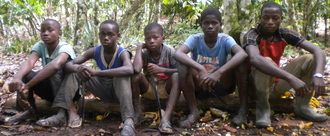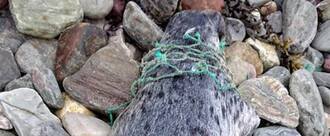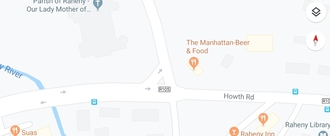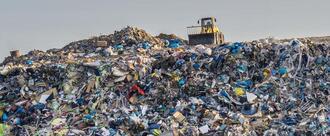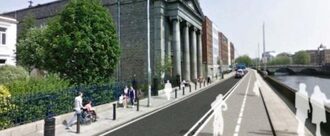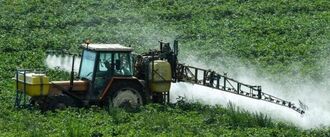- Featured
- Animal Rights
- Anti-racism
- Arts & Culture
- Children
- Climate
- Corporate accountability
- Crime
- Disability rights
- Economic
- Education
- Environment
- Food and Sustainable Production
- Gender Equality
- Governance and Transparency
- Health
- Housing
- LGBT Rights
- Mental health
- Northern Ireland
- Planning
- Privacy and Data Protection
- Rural Inequality
- Social Justice
- Trade
- Transport and Infrastructure
- Workers' Rights
- More
-
Ban Political PostersTens of thousands of mainly plastic election poster will be put up during the next election campaign. We don't need them. They are a polluting waste of time, money and resources. They reduce the democratic process to a meaningless exercise in Airbrushed face recognition. They cost a lot of money which at best favours parties and individuals with deep pockets and at worst leaves Politicians indebted to wealthy donors and lobbyist.9,245 of 10,000 SignaturesCreated by Colin Walsh
-
4 days a week in IrelandBetter productivity. More efficient usage of time Employee satisfaction Lower unemployment rates And most importantly it is better for the environment as we won’t produce as much greenhouse emissions.104 of 200 SignaturesCreated by Albert Murphy
-
Stand with Slave Free ChocolateConsumers need to pressure cocoa companies to address child labor and farmer poverty IMMEDIATELY. All people should be treated fairly, not mistreated or abused, just to make a delicacy for someone else. We want to send a message to big chocolate companys to purchase cocoa from farmers who use fair work practices. So please sign my petition, buy fair-trade chocolate only, and send letters to these companys to inform them of your unhappiness with their disregard for human rights. Choose Fairtrade Labels. https://www.greenamerica.org/end-child-labor-cocoa/chocolate-scorecard In 2010, Green America launched the Raise the Bar! Hershey campaign with allies, demanding that Hershey take steps to address the issue of child labor in their supply chain. Thanks to sustained pressure from Green Americans and Hershey consumers, the two-year campaign culminated with a commitment from Hershey to move to 100% ethically sourced cocoa by 2020. The Raise the Bar! Hershey campaign demonstrates how powerful a united consumer voice is. We must continue to build on the success of the Hershey campaign, and pressure other leaders in the cocoa industry to make serious commitments to eradicate child labor.18 of 100 SignaturesCreated by Lorraine Carolan
-
SAY NO TO SEAL CULLThere are two species of seals in Irish waters, the grey and the harbour seal but in recent years Artic visitors such as bearded, walrus and most recently a hooded seal have arrived on our shores. We have many things to learn about how seals use our coastline and these species are protected under the Wildlife Act, 1976 and its amendments and the EU Habitats Directive as they are important indicators of ecosystem health. Indeed the recent sightings of such northerly species have been a cause for concern and it is of interest that we monitor such important indicator species in a time when the planet faces climate crises and is undergoing the 6th Mass Extinction. Read more here: https://www.orcireland.ie/call-to-cull-seals-in-irish-waters and here: http://www.ecoevoblog.com/2019/03/05/seal-cull/712 of 800 SignaturesCreated by ORCA Ireland Ocean Research & Conservation Association

-
We Sent Australia Our Weak During Our Crisis; Let's Send Them Our Strong During TheirsMany of us in Ireland have extended family or good friends living in Australia. Cousins, aunts, uncles, colleagues, former school-friends, online pals - we all almost certainly have people there we care about. To the best of my knowledge air quality is around 200 times worse than what is considered a major health hazard and the equivalent of smoking around 40 cigarettes in their capital city. Thankfully, for now, the direct death toll is low; if we are proactive in helping and inspiring others to act we can make a real difference. It's not to late yet but time is of the essence. They need someone to step up for them. When we look at other English speaking countries like the UK and US it is quite obvious that, for all their size and influence, they aren't in a position to lead on this. It can be tempting to shirk away from our duty to our fellow man and worry about only our island and maybe our allies on mainland Europe in such complicated times, but please remember that their population contains among it descendants of our own ancestors who were sent there because of the famine (for they stole Trevelyan's Corn so our younger ancestors might see the morn), and a native people who suffered in turn from how our desperate ancestors were used by the British Empire to steal their land from them. They are not a people we can turn our back on in their moment of crisis, because as small as we are we have the power to get the ball rolling. Once we do it can create monumentum that will encourage our allies to follow suit, and put pressure on larger governments to do the same. To be blunt: We can act, and we should act, so we must act. It is the right thing to do.9 of 100 SignaturesCreated by Twilord Colm
-
Make the traffic lights in Raheny village pedestrian friendlyThe traffic lights at Raheny village are anti-pedestrian and punish people who travel on foot - particularly older people, young children and people with disabilities. This must change immediately.202 of 300 SignaturesCreated by Paddy Monahan
-
Allow Keep Cups To Be Used On TrainsWe're in a plastic waste crisis and the policy of not allowing drinks to be bought using keep cups is nonsense https://www.irishtimes.com/life-and-style/food-and-drink/irish-rail-ban-on-reusable-cups-angers-passengers-1.4114752480 of 500 SignaturesCreated by Siobhan O'Donoghue
-
STOP COMMERCIAL WHALING NOW! Boycott Japanese Products and Services in the EU.It has been a devastating year for environmentalists and ocean advocates all over the world as Japan withdrew from the International Whaling Commission (IWC) on July 1st 2019 and re-commenced commercial whaling for the first time in over 30 years. For many years Japanese whalers hunted whales in Japanese and Antarctic waters under the guide if "scientific whaling", now although not fishing in protected waters of the deep southern ocean, they have began commercial hunting of whales in Japanese waters. In 2019, Japanese whalers killer 232 whales , including 187 Byrde's whales, 25 sei whales, and 11 minke whales. Despite global out-cry and a dwindling demand for whale meat consumption in the country, the Japanese government have now passed a law to fund commercial whale hunts and to promote the consumption of whale meat in schools, despite the meat being highly toxic and dangerous for human health. Read more: https://www.orcireland.ie/japanese-whalers-kill-223-whales-completing-their-first-hunt-in-over-three-decades Read more: https://www.orcireland.ie/japanese-government-to-fund-more-whale-hunts The slaughter of protected species like minke, Bryde's and sei whales are brutal and horrific, as whales are harpooned, sometimes with explosives. On contact with the animal, the harpoon spread open to prevent the whale from escaping and death is slow and excruciatingly painful. Whale populations around the world are facing a multitude of human impacts from plastic pollution to overfishing and entailments, the last thing the world's marine biodiversity needs is further over exploitation and abuse. Please SIGN our Petition to urge Japans Prime Minister, Shinzo Abe to STOP JAPAN COMMERCIAL WHALING to protect cetacean species in Japanese waters instead of slaughtering them for profit and boycott Japanese goods and services until they END WHALING. Please sign to urge Japans Ambassador Mitsuru Kitano to urge Japanese officials to END COMMERCIAL WHALE HUNTS in a bid to tackle the world's biodiversity loss crises! Join us for a protest outside the Embassy of Japan in Ireland, Dublin on February 13th to celebrate World Whale Day 2020.88 of 100 SignaturesCreated by ORCA Ireland Ocean Research & Conservation Association

-
Trial a cycle path on Dublin’s quays in 2020Plans have been mulled for years to try to keep everybody happy. But an apparent solution made public in May 2019 includes removal of rows of trees, narrowing footpaths, interfering with historic bridge walls, and even the removal of some existing pedestrian crossings. And for what? The draft plans show a route which is not continuous, leaves people cycling exposed at junctions, and looks too narrow for current demand in cycling. Often a lack of funding is given as a reason for delaying projects, but the Liffey Cycle Route has mainly suffered an issue with “politics of space” — mostly a fear of removing cars from parts of the quays despite international examples showing that this is the way to go. This is as much about what kind of capital city Ireland wants as it is about cycling: A car-dominated city centre or enabling sustainable transport which is better for transport capacity, health, the local air quality, and even climate change -- which is better for local residents, business, workers and tourism. Cycling has increased in Dublin in the last decade but the creation of safe and attractive cycle routes has remained stalled long after economic recovery while at the same time extra lanes have been added to motorways near the city. Rather then keep spending years of planning each route, Dublin needs to start a quick-build network and there's no better place to start than the quays which connects so much of the city. We are asking that city and national authorities go back to the previous plan of continuous two-way cycle path on the quays to at least trial it for 8-12 months and then ask if people want to go back to the way things are now. MORE DETAILS: How a two-way cycle path on the north quays can be trialed -- Can Dublin #GreenTheQuays if it means disrupting car traffic?: https://irishcycle.com/2019/08/06/can-dublin-greenthequays-if-it-means-disrupting-car-traffic/ How the NTA’s plan for the Liffey Cycle Route is on the wrong path for Dublin’s future: https://irishcycle.com/2019/05/22/liffey-cycle-route-is-on-the-wrong-path-for-dublins-future/ Motor traffic around Dublin's River Liffey quays shocked international cycling experts https://irishcycle.com/2019/12/09/motor-traffic-around-dublins-river-liffey-quays-shocked-international-cycling-experts/ Liffey Cycle Route: Timeline and coverage: https://irishcycle.com/2019/12/10/liffey-cycle-route-timeline-and-coverage/4,462 of 5,000 SignaturesCreated by Cian Ginty

-
Ban Toxic Glyphosate in Northern IrelandFigures obtained by the Derry Journal from the Department of Agriculture, Environment and Rural Affairs (DAERA) show that almost 60,000 acres of land in Northern Ireland were sprayed with glyphosate in the last two years for which data is available. Glyphosate is the active ingredient in the brand which is manufactured by US agriculture company Monsanto. In 2015 the World Health Organisation concluded that the pesticide was 'probably carcinogenic to humans'. Despite this DAERA has stated it is likely to continue to be used in Northern Ireland until 2022 at least. The EU re-approved the use of glyphosate in 2017 however, in the last few years it has been banned by countries including France, Germany, Sri Lanka, El Salvador, the Netherlands, Argentina, Columbia, Peru and Mexico.162 of 200 SignaturesCreated by Nicola Browne
-
Issue Michael creed minister for agriculture with p45Its extremely important that farmers take the time to sighn this petition , as I feel its the first step and only step in rectifying the great imbalances that farmers are experiencing, when we as independent farmers elect our own representative to hold position as minister for agriculture, then we as a farming community can work towards resolving farmers issues re instating farmers rights equality something that is being rashioned at present, we can resolve the great imbalances being experienced11 of 100 SignaturesCreated by Peter Curran
-
Call For A Phase-Out Of Gasoline-Powered VehiclesTransportation powered by gasoline and diesel fuel is America’s single biggest source of carbon emissions, contributing to warming temperatures on land and in the oceans, resulting in unprecedented natural disasters. Extracting, transporting, refining and using oil and gasoline causes harm to people, air, water, land, animals, and plants. Gasoline vehicle exhaust pollutes the air, causing asthma, heart and lung disease, cancer, dementia and thousands of premature deaths each year. Vehicle exhaust affects children, disadvantaged communities and communities of color the most, with disproportionate health, financial and quality of life impacts. In the past, we adopted reasonable vehicle regulations to require seat belts, airbags, catalytic converters, unleaded gas and other improvements to protect health and safety. It’s time to act again. Electricity is already viable as a clean alternative to gasoline. Costs to fuel and maintain an electric vehicle are already cheaper than for gas cars, and electric vehicle sticker prices are forecast to be cheaper by the mid 2020s. To protect public health, clean the air, slow a rapidly warming climate, and promote economic and environmental justice, we call on our local, state and federal government officials to ensure that, starting in 2030 or sooner, all new vehicles sold are clean, zero emissions vehicles, not gasoline or diesel vehicles.9 of 100 SignaturesCreated by Slava Digriz


.jpeg)

